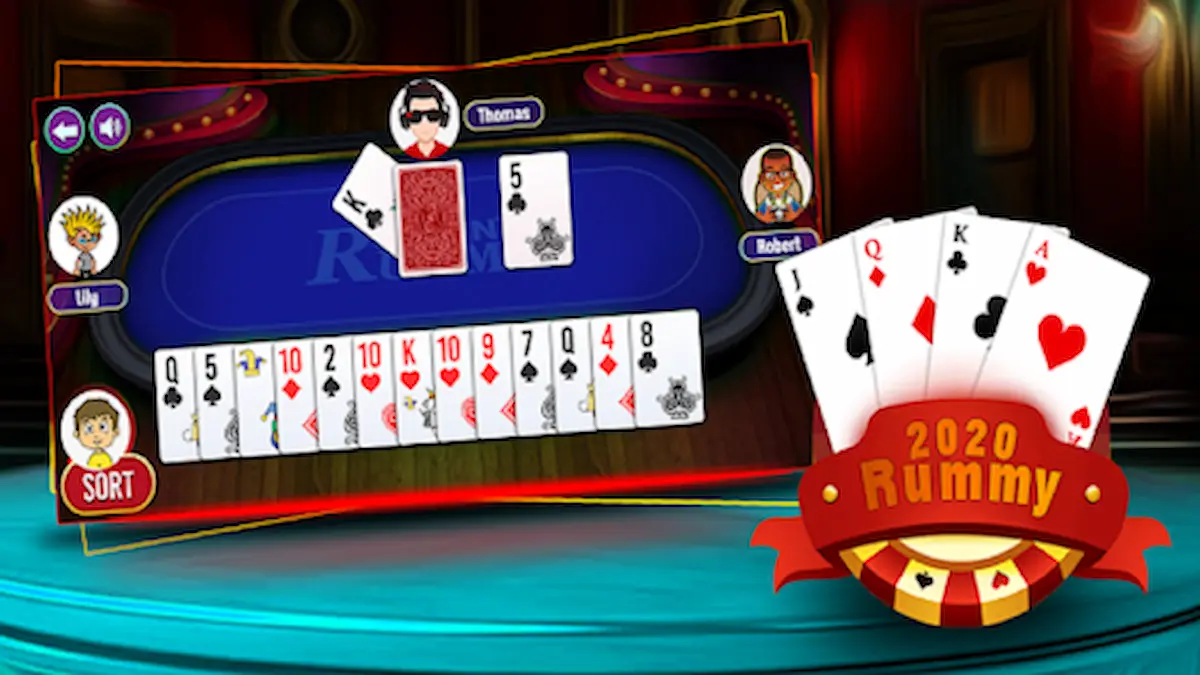Paplu, a beloved variant of Indian Rummy, is a classic card game that blends logic, memory, and strategic thinking. Rooted deeply in Indian gaming traditions, the Paplu card game continues to capture the interest of casual players and card game enthusiasts alike—now even more popular thanks to digital platforms.
In this guide, we break down the Paplu gameplay, explore the Paplu card game rules, and highlight the unique aspects of Indian Paplu rules to help beginners and intermediate players master the game.
What Is the Paplu Card Game?
Paplu is a 13-card Rummy game that belongs to the Indian Rummy family. The objective is to arrange 13 cards into valid combinations called sequences and sets. A sequence is a group of three or more consecutive cards of the same suit, while a set is a group of three or four cards of the same rank but different suits.
Paplu is typically played with two to six players and uses two standard decks of 52 cards along with jokers. The game requires both skill and strategy, distinguishing it from luck-based card games.
The Popularity of Paplu in India
Paplu is a staple in Indian households, often played during family gatherings, festivals, and social events. With the rise of mobile apps and online gaming platforms, Paplu has transitioned seamlessly into the digital space.
You can now play Paplu on websites like:
-
RummyCircle
-
Junglee Rummy
-
Adda52 Rummy
These platforms offer both practice games and cash tournaments, making Paplu accessible to a global audience.
Paplu Gameplay: Step-by-Step Overview
Understanding Paplu gameplay is essential to enjoy and succeed in the game. Here’s a simplified walkthrough:
1. Game Setup
-
Each player is dealt 13 cards.
-
One random card is selected as the wild joker.
-
All cards of that same rank, regardless of suit, become wild jokers.
2. Gameplay Objective
The main goal is to form:
-
At least two sequences, one of which must be a pure sequence (no jokers).
-
The rest of the cards can be arranged into additional sequences or sets.
Once a player achieves this, they can make a valid declaration to win.
3. Player Turns
Each player:
-
Draws one card from either the open or closed pile.
-
Discards one card to maintain a 13-card hand.
-
Tries to improve their hand each turn by forming better combinations.
4. Declaring the Game
-
When a player forms valid sequences/sets and meets the requirements (pure sequence + second sequence), they can declare.
-
The declaration is verified. If valid, the player wins and gets 0 points.
-
Other players get points for ungrouped cards.
Paplu Card Game Rules
Let’s explore the Paplu card game rules in detail, focusing on what’s allowed and what can lead to penalties:
Card Combinations
-
Pure Sequence: Three or more consecutive cards of the same suit without a joker.
-
Example: 5♣, 6♣, 7♣
-
-
Impure Sequence: Sequence formed with the help of one or more jokers.
-
Example: 8♦, Joker, 10♦
-
-
Set: A Group of 3 or 4 cards with the same rank but different suits. Jokers are allowed.
-
Example: 9♠, 9♦, 9♥
-
Mandatory Requirements
-
Minimum one pure sequence is required.
-
A second sequence (pure or impure) is also mandatory.
-
Remaining cards must be part of valid sequences or sets.
Joker Rules
-
Wild Joker: Randomly selected card, e.g., 4♦.
-
Printed Joker: Always acts as a joker, can replace any card except in a pure sequence.
Scoring
-
Face cards (A, K, Q, J) = 10 points
-
Number cards = Face value
-
Jokers = 0 points
-
Maximum penalty = 80 points
Invalid Declaration
If a player declares without a pure sequence or proper combinations:
-
They receive 80 points (maximum penalty).
Indian Paplu Rules: Key Cultural Differences
Indian Paplu rules share the same core as other rummy variants but come with some traditional nuances:
1. Use of Jokers
Indian Paplu often incorporates two types of jokers: one printed and one wild, adding an extra layer of strategy.
2. Traditional Terminology
-
Pure sequence is often called “natural life.”
-
An impure sequence is referred to as “second life”
3. Local Rule Variations
In some local circles:
-
First discard may not be allowed.
-
A wrong show (invalid declaration) may eliminate a player from the round entirely.
-
Some groups play with a 101 or 201 points elimination format rather than single-round gameplay.
4. Cash-Based Play
In family settings, Paplu is often played for tokens or symbolic rewards. But in real-money formats, like on Junglee Rummy, strict game rules and randomization are enforced for fairness.
How to Improve Your Paplu Gameplay
Mastering Paplu takes time and practice. Here are some expert-level tips:
Focus on Pure Sequences First
Always try to form your pure sequence early in the game. Without it, even a great hand will be invalid.
Discard High-Value Cards
If your hand looks bad, drop high-point cards like Q, K, and A to minimize loss.
Use Joker’s Smartly
Use jokers only in sets or impure sequences. Don’t waste them on already valid combinations.
Observe Opponents
Watch what your opponents pick and discard. It gives clues about the type of hand they’re building.
Practice Regularly
Platforms like RummyCircle offer free tables where you can hone your skills before entering real cash games.
Is Playing Paplu Legal in India?
Yes. As per the Supreme Court of India, Rummy—including Paplu—is considered a game of skill, not gambling. Therefore, it’s legal in most Indian states.
However, a few states, such as Andhra Pradesh, Telangana, and Assam, have local laws restricting real-money rummy. Always verify your local regulations before playing online.
Frequently Asked Questions
What is a pure sequence in Paplu?
A pure sequence consists of three or more cards of the same suit in consecutive order, with no joker used.
How many players can play Paplu?
Paplu is best played with 2 to 6 players.
Can I play Paplu online for free?
Yes. Most online rummy platforms offer practice tables that are 100% free.
What happens if I declare incorrectly?
You’ll receive a penalty of 80 points, which can be disastrous in cash games or tournament play.
Final Thoughts
The Paplu card game is more than just a pastime—it’s a skill-based challenge that improves memory, decision-making, and strategic thinking. Understanding the Paplu card game rules, mastering the Paplu gameplay, and being aware of the traditional Indian Paplu rules will give you a distinct edge, whether playing at home or online.
With the rise of gaming platforms like Adda52 Rummy and Junglee Rummy, there’s never been a better time to learn and enjoy Paplu. So shuffle those decks (or tap your app), and let the game begin!



